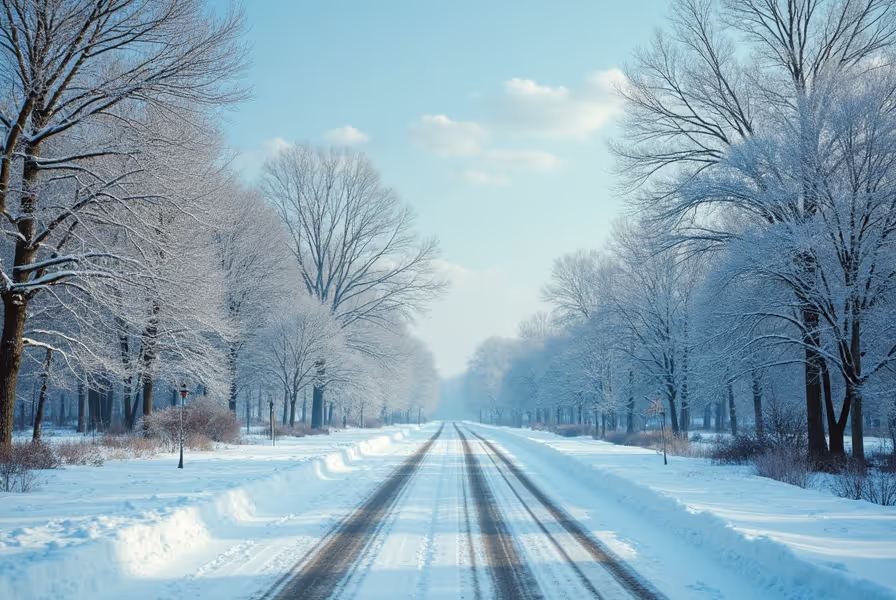Overview of New Jersey's Annual Weather Patterns
New Jersey experiences all four distinct seasons, making it a dynamic state in terms of weather variation. From warm, humid summers to snowy, brisk winters, the Garden State offers a full spectrum of temperature changes throughout the year. Whether you're relocating, planning a vacation, or simply curious, understanding what weather to expect in New Jersey by season helps you prepare effectively.
Spring Weather in New Jersey: March to May
Spring in New Jersey is a season of transformation. Temperatures gradually warm, and the landscape begins to bloom. Early March might still feel wintry, but by late May, you'll often experience days in the 60s and 70s°F.
- Average highs: Mid 50s°F to mid 70s°F
- Increasing daylight and sunshine
- Frequent rain showers, especially in April
- Allergy season peaks during this period
Spring is a great time to explore outdoor activities. Coastal towns begin to open for the season, but beaches remain relatively uncrowded this time of year. If you're planning outdoor events, check the forecast for potential rain—it’s common in April throughout New Jersey.
Summer in New Jersey: What to Expect from June to August
Summers in New Jersey can be hot and humid, especially in the southern and inland regions. Shore points like Atlantic City and Asbury Park often provide mild ocean breezes that make the coast more comfortable.
- Average highs: 80s°F to low 90s°F
- High humidity levels—up to 85%
- Thunderstorms are common in the afternoons
- Hurricane season begins in June and peaks in August
New Jersey beaches are most active during the summer. You’ll encounter large crowds on weekends, especially on holidays. Pack sunscreen, stay hydrated, and plan for occasional rain or severe weather warnings. Heat advisories may be issued during July and August, especially in northern New Jersey towns and cities like Newark and Jersey City.
Fall Weather in New Jersey: September to November
Autumn in New Jersey is nothing short of spectacular. You’ll enjoy cooler temperatures, reduced humidity, and vibrant foliage from late September through early November. Fall is an ideal time for scenic drives, apple picking, and outdoor festivals.
- Average highs: Low 70s°F in September to mid 50s°F in November
- Lower humidity and crisp air
- Bright foliage peaks in mid-to-late October
- Early frosts can occur by late October
Fall weather can be unpredictable. While early September often feels like summer, a sharp cold snap can arrive by Halloween. Dressing in layers helps you stay comfortable as temperatures shift throughout the day.
New Jersey Winter Weather Conditions: December to February
Winters in New Jersey vary depending on your location. Coastal areas tend to be milder, while inland and northern parts of the state like Morristown and Sussex can experience significant snowfall.
- Average highs: 30s°F to low 40s°F
- Snowfall ranges from 10 to 30 inches annually, depending on location
- Occasional nor’easters bring heavy snow and strong winds
- Short daylight and icy conditions are common in January
Winter storms can cause school closings and travel delays. If you're new to the area, consider winterizing your vehicle and home to prepare for ice, snow, and freezing temperatures. January is typically the coldest month in New Jersey.
Climate Variations Across New Jersey Regions
New Jersey's geography introduces weather differences across regions:
- North Jersey (Bergen, Passaic, Sussex): Colder winters, higher snowfall
- Central Jersey (Middlesex, Somerset): Balanced seasonal changes with moderate precipitation
- South Jersey (Camden, Atlantic): Warmer summers, milder winters
- Jersey Shore: Influenced by ocean temperatures, cooler summers, and less snow in winter
Each region has its own microclimate, so it’s wise to check local forecasts rather than relying on state-wide climate averages. Seasonal extremes are more noticeable in the northern and inland areas.
Frequently Asked Questions About New Jersey Weather
What is the coldest month in New Jersey?
January is typically the coldest month in New Jersey, with average daily highs in the 30s°F and lows often in the 20s°F. Snowfall is also most common in January and February.
How much snow does New Jersey get in a year?
Annual snowfall varies widely. North Jersey can get up to 30 inches, while South Jersey and coastal areas may receive only 10 to 15 inches per year.
When is hurricane season in New Jersey?
Hurricane season in New Jersey runs from June 1 through November 30, with the highest risk occurring from August to early October.
Does New Jersey experience tornadoes?
Yes, but they are rare. New Jersey averages a few tornadoes each year, mostly weak and short-lived, though some can cause localized damage.
What time of year is best to visit New Jersey?
Late spring and early fall are the best times to visit New Jersey. You’ll enjoy mild weather, fewer crowds at the shore, and beautiful natural scenery.
Tips for Navigating Year-Round Weather in the Garden State
Living or traveling in New Jersey means preparing for all types of conditions. Here's how you can stay comfortable year-round:
- Winter: Keep snow gear and emergency kits in your car
- Spring: Carry an umbrella and monitor allergy forecasts
- Summer: Use sunscreen and stay indoors during heatwaves
- Fall: Wear layers and enjoy seasonal activities like pumpkin picking and hikes
New Jersey’s diverse weather contributes to the charm of living in this East Coast state. From snowy mornings in January to sunny beach days in July, each season offers something memorable.











.svg)



